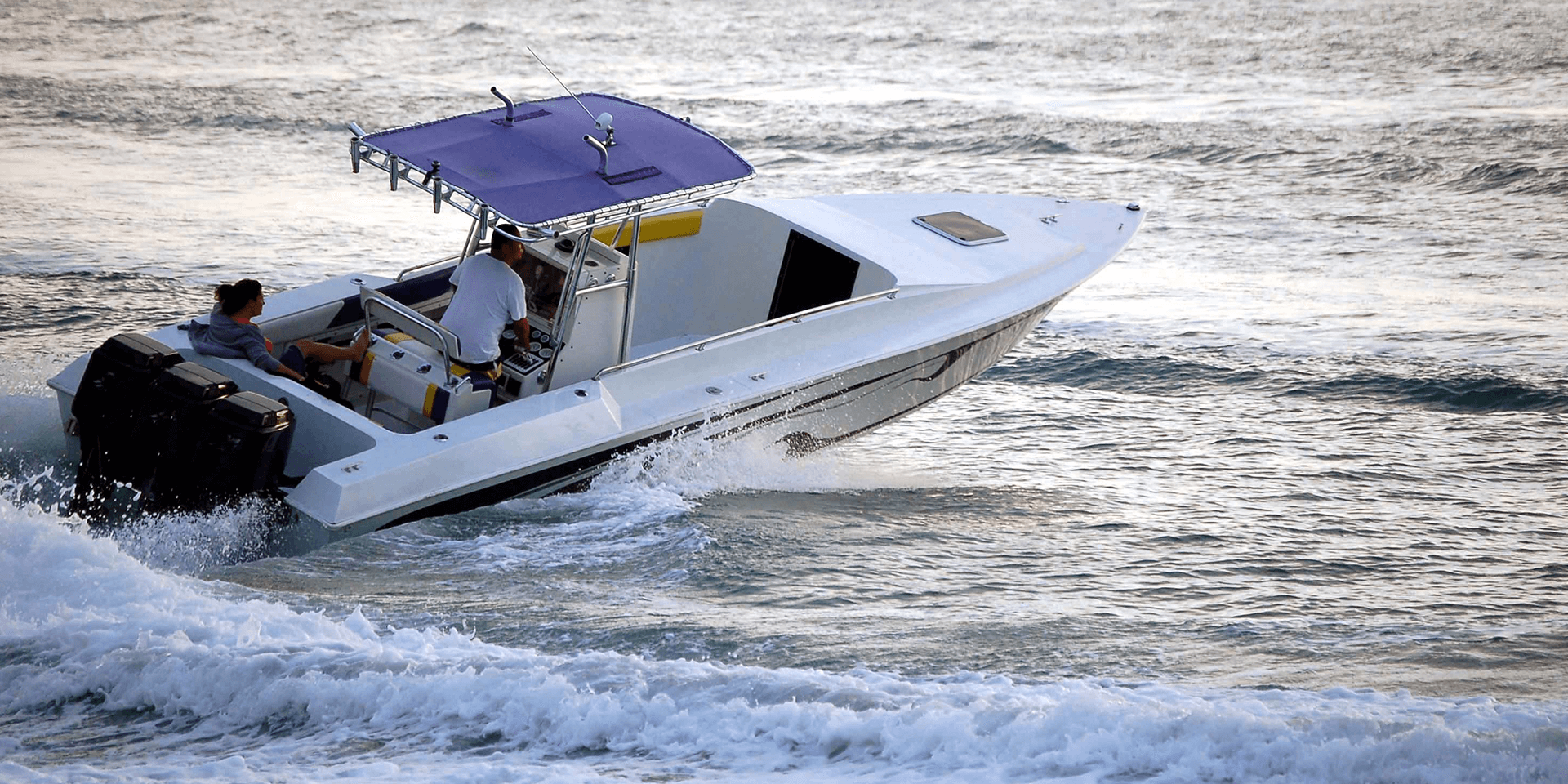Quick Navigation:
- The Advantages of Buying a Used Boat
- How to Buy a Used Boat
- Questions to Ask When Buying a Used Boat
- What Should I Check When Buying a Used Boat?
- Things to Know When Buying a Used Boat
- What Questions Should You Ask the Owners When Buying a Used Boat?
Buying a used boat can make your dream of going fishing in your personal paradise away from home a reality. Used vessels are the most affordable for many, but you have to be careful when searching for one. From hunting for the features you want to conducting a comprehensive inspection, getting the perfect boat requires taking the right steps.
This used boat buying guide covers the basics of how to get started and what to check when buying a used boat. If you are a first-time buyer or are an experienced owner just looking for helpful tips for buying a used boat, learn about the process below:
The Advantages of Buying a Used Boat
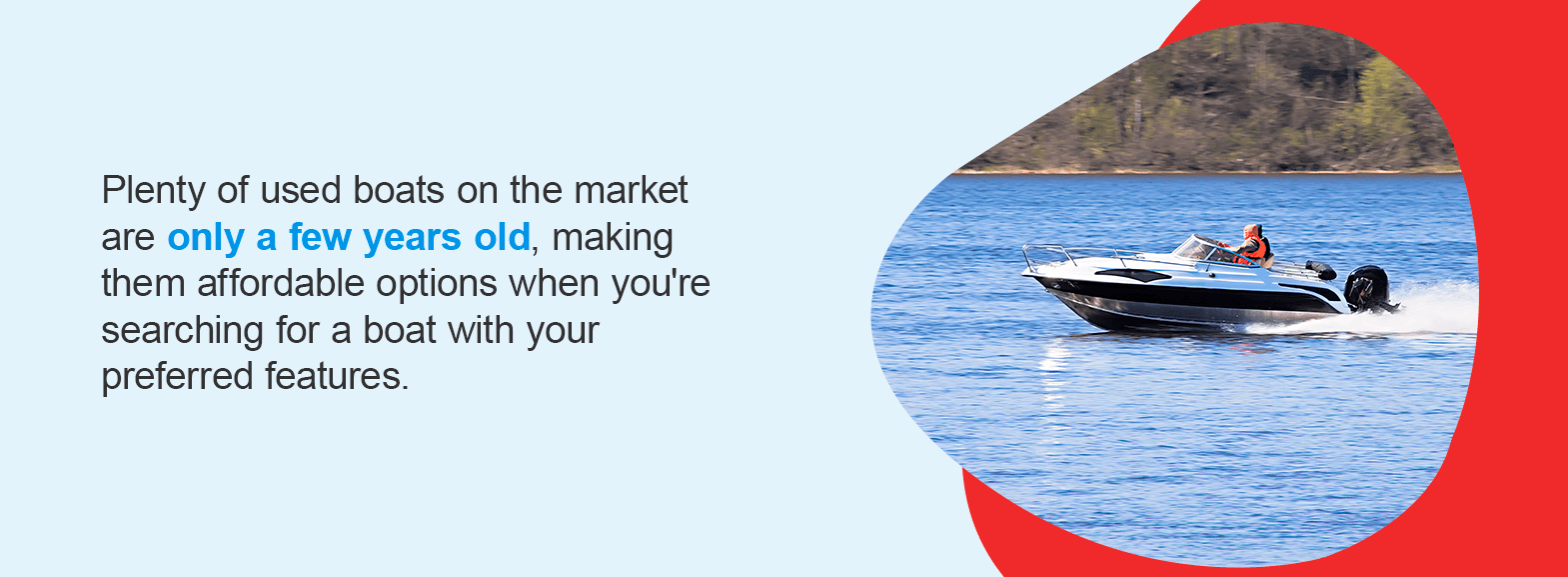
Plenty of used boats on the market are only a few years old, making them affordable options when you're searching for a boat with your preferred features. Although a new boat is the manufacturer's latest option, buyers also appreciate used boats for their benefits.
Buying used allows you to:
- Avoid rapid depreciation: A used boat has already depreciated somewhat, so you can get more out of the purchase if you choose to resell the boat later.
- Find more options: New boats can be more difficult to find for the price range you require, but used boats are widely available online. New boats are often displayed in exclusive showrooms and carried at select dealerships, and you only get so much flexibility when shopping for one.
- Get accurate information: A new boat might have technological bugs that get addressed a year or two later, when the manufacturer issues recalls. You can find a trove of information about each older boat model online, so you will know which brands and models have time-tested reputations.
In comparison, buying new allows you to:
- Have access to the manufacturer's warranty: The original warranty can help with some maintenance and repair costs, particularly if something fails to work properly. You can also get faulty parts under recall replaced quickly, often for free. But you can purchase an extended warranty to cover a used boat.
- Avoid hidden costs: Additional costs could be associated with buying a used boat when it comes to fixing any hidden issues. If a new boat has unexpected issues, the warranty may take care of any associated costs.
- Get the latest technology: A new boat should be compatible with the latest accessories on the market, but you can usually find equivalent older technology to use with a pre-owned boat.
How to Buy a Used Boat
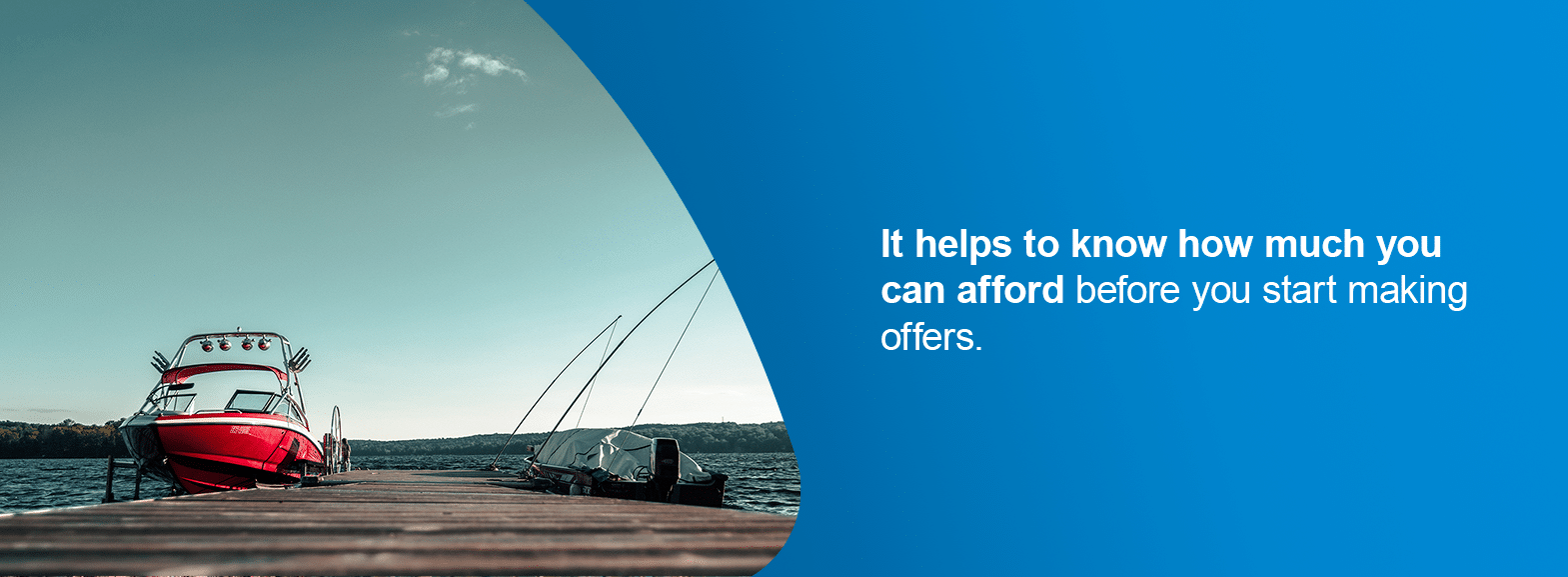
Whether you are researching how to buy a used pontoon boat or another type of vessel, if you have little experience buying or selling boats, navigating the market on your own can seem daunting. It helps to know how much you can afford before you start making offers. Here's how to make an offer on a used boat, which can also serve as a used pontoon boat buying guide:
1. Do Research
Find out what kind of boat you want before you start looking for lenders. You'll have an estimate for the price range you're looking to finance. You might decide that you want a more expensive boat than you first determined after researching the current options. If you get pre-approved for less than what you need to buy your favorite, you'll have to do a bit more research to find a vessel for you.
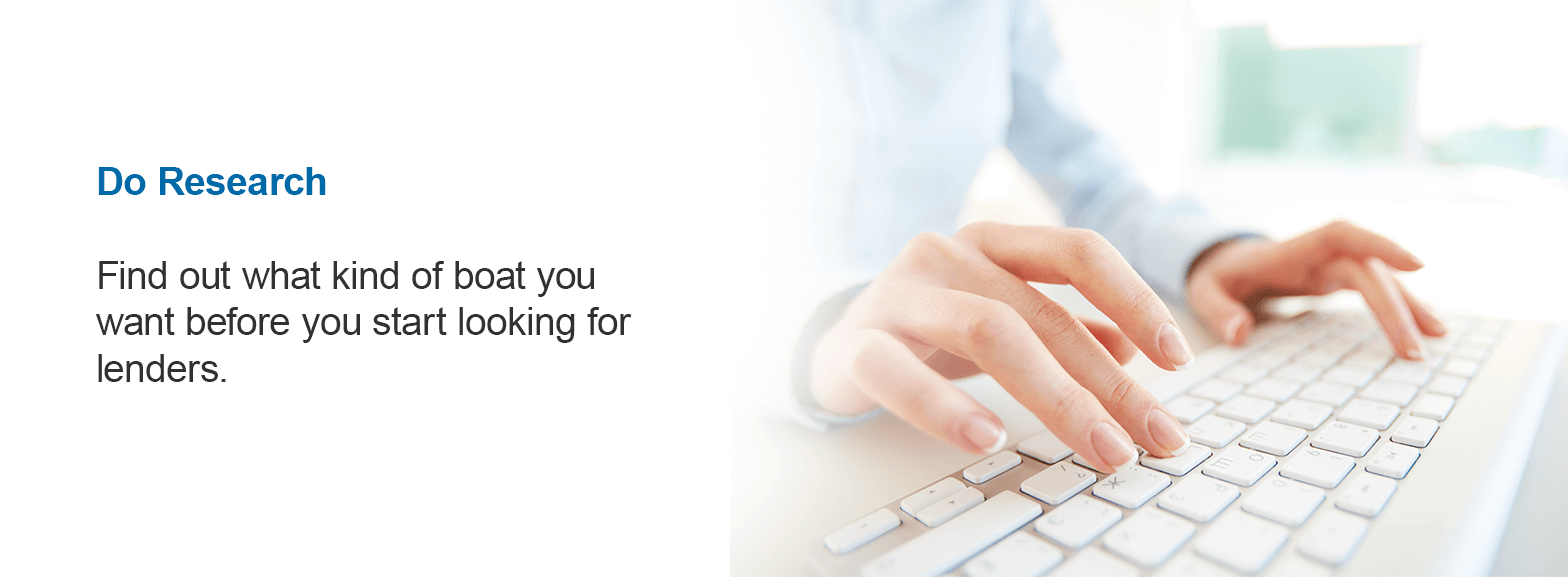
2. Find a Lender
When you know how much you would like to spend, the next step is finding out how much you can afford. Let My Financing USA connect you with the lending program that best fits your needs. Apply online in 5 minutes.
3. Find out What's Included
Ask the seller if the equipment and accessories on the vessel are included in the purchase price. Sometimes, the owner will want to take things out before closing. It's a good idea to get a list of what's included in writing. The seller might already have a list, or you can request one.
4. Make Your Offer
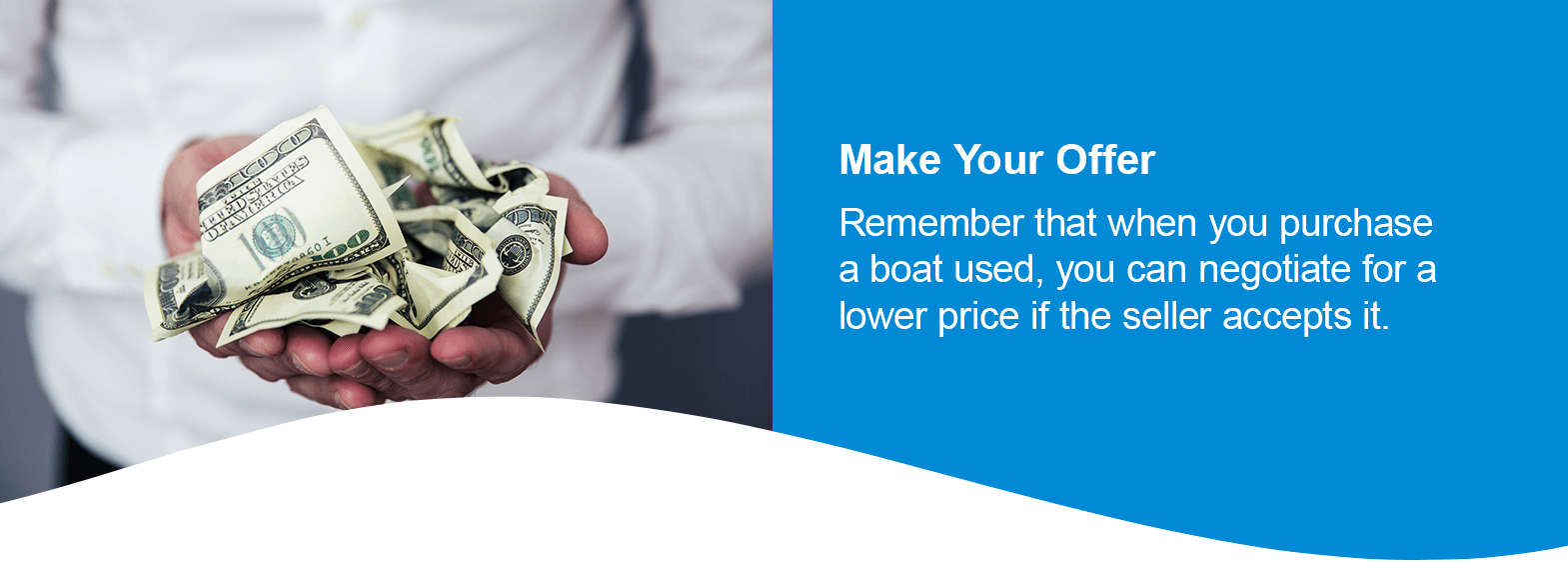
Specify the offer amount to the seller. Remember that when you purchase a boat used, you can negotiate for a lower price if the seller accepts it. You can also accept the boat "as is," but you should avoid making this type of offer until you've ordered a sea trial.
Determining the right amount to barter for can be tricky. You might suspect a present issue, but a visual inspection can only tell you so much. The seller decides whether your offer is reasonable and can choose to barter for less of a discount. Consider researching makes and models from similar years for an idea of what you can offer.
5. Get a Sea Trial and Survey
This is how to inspect a used boat before buying the most thoroughly. The seller could have reasons for putting a used boat on the market without disclosing its problems. The most common reason is a lack of awareness. If the boat has issues that make it unsafe to use, the seller might be unaware because they last sailed years ago.
When buying a used vessel, make sure the sale is contingent upon a sea trial and survey. This way, if the boat fails the inspection, you have evidence of its issues in your favor, and you can back out of the offer you made.
6. Go to Closing
Closing happens after you have finalized your offer. The buying timeline goes like this:
- After you make your initial offer, the seller has so long to respond. Usually, this period is for 24 to 48 hours, but it could differ depending on what you agree to in writing.
- After the seller responds, you have another time period to take the boat on a sea trial and survey. This is when you should inspect the boat to make sure it's exactly what you want.
- Then, you can finalize your acceptance of the boat within around two weeks of the seller's acceptance of your offer.
- Closing the transaction involves the current owner transferring ownership to you. This usually happens around one week from your formal acceptance.
Questions to Ask When Buying a Used Boat
Start by knowing which type of boat you want. For example, the vessel's size is important for some boaters, but the onboard features are what matters most for others. You might also care about the layout, depending on the waterside recreational activities you're interested in.
If you have questions about buying a used boat, here is what you need to have an idea of:
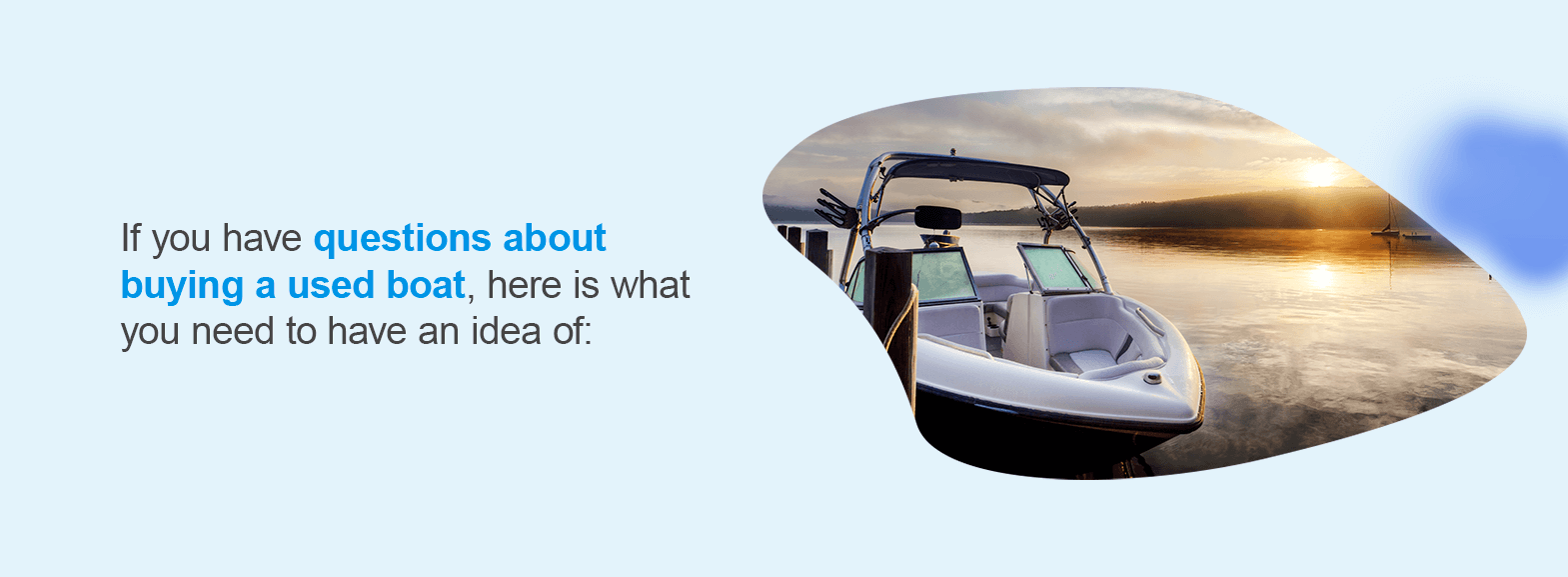
What Do You Plan to Use the Boat for?
Before you buy a boat, think about why you want it. You can get a boat that does almost everything or a specialized vessel like a ski boat or a bass boat. The ideal vessel for long-range cruises is a different boat from one the owners used for days fishing out on a lake.
While you're doing research on how to buy a used ski boat, how to buy a used bass boat or other options, learn the differences between boats best suited for fishing, cruising and recreation.
Do You Need the Boat to be Speedy?
If you care about speed, then ask about the boat's maximum knots. Otherwise, avoid paying for a speedy boat if this factor is unimportant.
Do You Plan to Camp in Your Boat?
If you plan to spend nights out on the boat, you might want to stay in a cabin equipped with a sleeping space, especially if you plan to spend several days out on the water. Many smaller boats lack built-in weather covers, so you would have to buy a weather barrier separately to keep over your sleeping bag on a boat camping trip.
How Many Guests Will You Bring?
Always find out how many guests the used boat can accommodate. If you're planning to take your family and friends out on the water, it would be disappointing to discover that the boat you just purchased is too small for everyone. When determining how many guests can fit safely on a boat, consider the dimensions and look at other factors like the length, width, draft, bridge height and depth.
Where Do You Plan to Store the Boat?
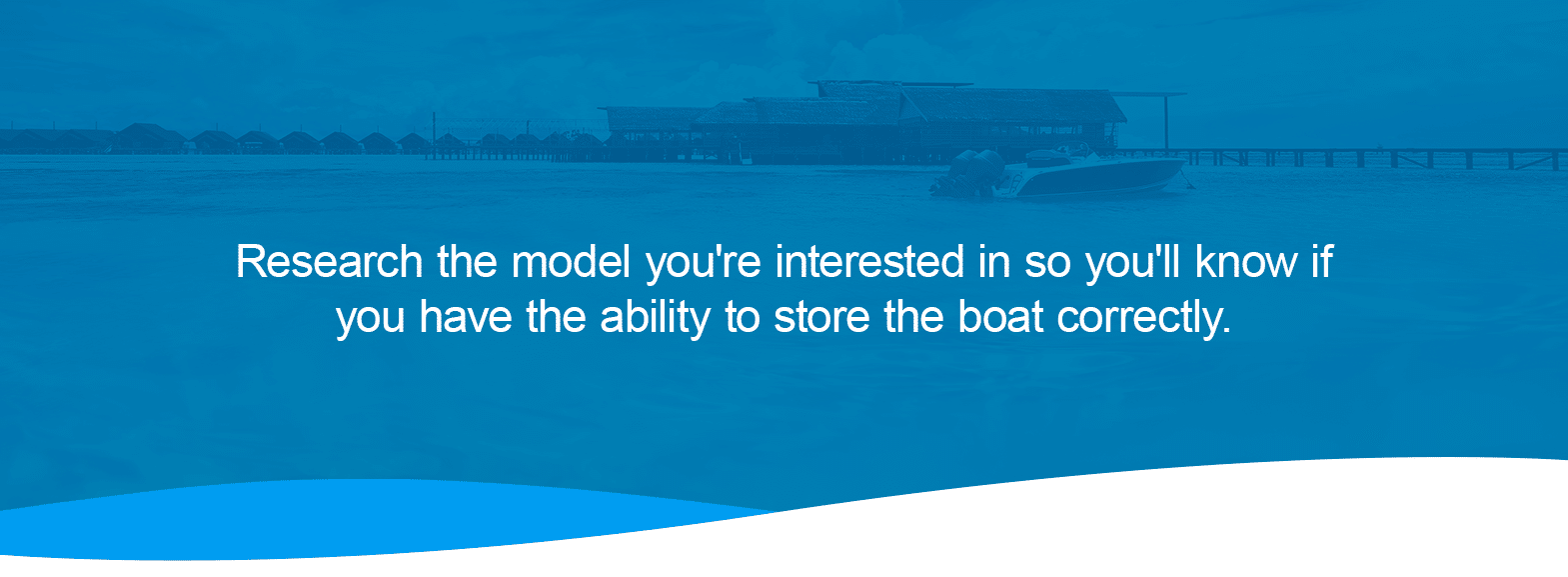
Ask about the previous owner's storage methods. Research the model you're interested in so you'll know if you have the ability to store the boat correctly. If the boat is smaller, you might be able to fit it in warehouse storage, but larger boats have to be winterized and stored in the water with an agitator. Another option for storing your boat is to pay for a specialized storage facility to keep it, resulting in another expense.
Can You Get a Loan for a Used Boat?
Yes, many buyers choose to get a loan when purchasing a used boat. Since water vessels are big-ticket items that come with additional expenses, they are most affordable when you have access to a loan. If you go through the process with My Financing USA, the steps are simple, and most of the work finding a lender is conducted on your behalf. You would fill out an application to find a match with compatible lenders, who you could choose to work with.
What Should I Check When Buying a Used Boat?
When buying used, inspect the boat personally and hire a professional to test the boat's capabilities. Things to check when buying a used boat include the overall condition and the way the owner has treated the vessel. Below is a used boat buying checklist with things to look for when buying a used boat:
1. The Boat's Information
If you're considering purchasing a boat, you should collect information to have on record and eventually share with a lender. Use your phone or bring a camera to take pictures of the:
- Hull Identification Number (HIN)
- Boat interior
- Boat exterior
- Engine
- Engine serial number
- Trailer Vehicle Identification Number (VIN)
2. Repairs and Maintenance
Before you go on board, ask the owners or your agent how well the vessel was maintained. A poorly maintained boat that was left idle for years without proper winterization could have issues that are difficult to notice initially. You can find the most obvious signs of damage on the boat's exterior, but a boat that has been repaired multiple times could quickly have new issues like leaks and wood rot.
A great deal of maintenance goes into caring for a boat. The owner can conduct most boat maintenance without the help of a mechanic, but boats with an engine should be serviced regularly. Components of the boat require the following regular maintenance habits:
- Looking the engine over for corrosion and replacing damaged hoses.
- Making sure the outboard or stern drive motor is secure and tightening the propeller nut with a deep socket wrench.
- Removing the propeller and greasing the shaft a few times per year.
- Checking the battery's charge at least once annually and using a wire brush to clean the connectors.
- Removing excess water from the bilge pump and checking the hoses for clogs.
- Keeping the electrical lines clean and checking them periodically with a digital multimeter.
- Getting regular oil changes and replacing the oil filter when needed.
- Checking the power steering fluid and coolant.
- Making sure the drain plugs on the hull remain in place.
3. Usage Habits
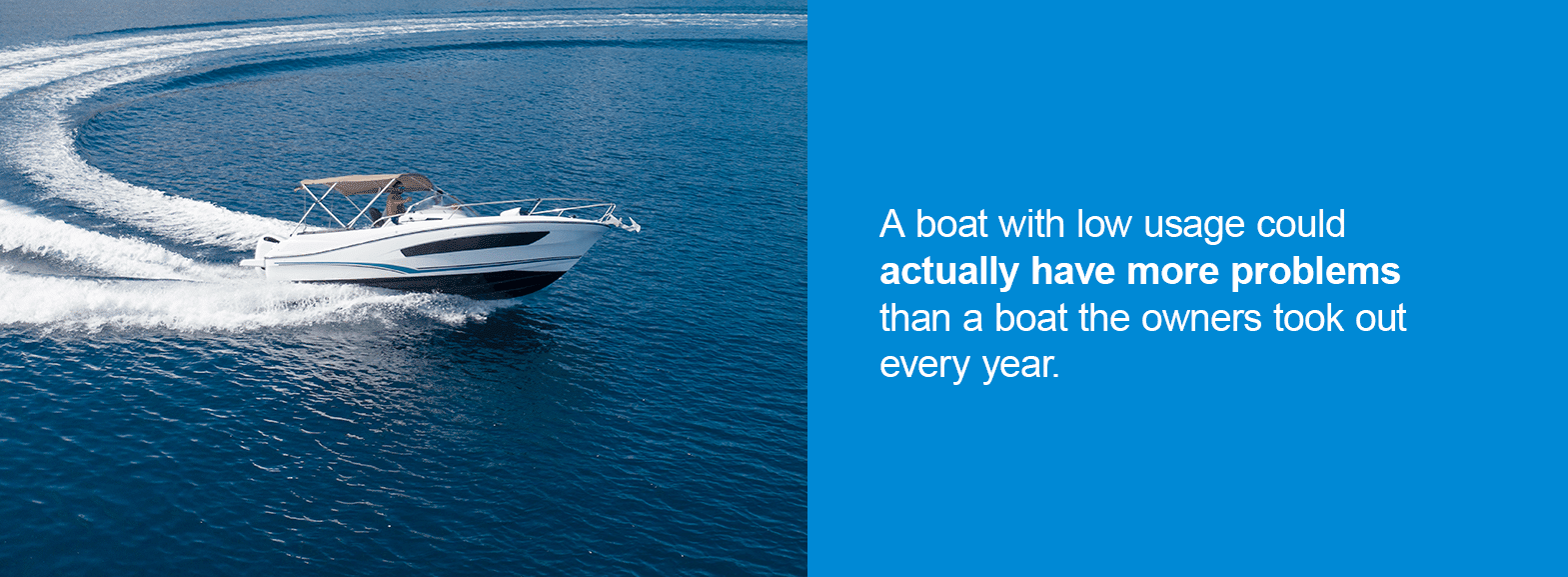
A boat with low usage could actually have more problems than a boat the owners took out every year. If you hear that the owners have been holding the boat in storage for years and have now finally decided to sell it off, be aware of possible issues that could have gone unnoticed.
Delayed maintenance from when the boat was in storage could result in more for you to do after you become the new owner. Sometimes, the owners may have stopped getting the boat out after experiencing issues, but so much time has passed, they forgot if anything is wrong.
4. Damage to the Hull
The hull encompasses most of the boat's exterior. Sometimes, if a boat was piloted carelessly, you see damages from it driving into rocks or debris. Inspect the hull for dents and other defects. If you see a repaired crack two inches in length or longer, the boat might have been in a collision.
Check for holes, which are a problem even if they were repaired. Look carefully below the water line for irregularities and any fiberglass repairs. A hull in a poor condition is difficult to fix, and if the exterior has many noticeable damages, it could indicate that the boat is unsafe to drive.
If the boat is old enough to have wooden transoms, these can rot internally, so make sure you feel them to see if they're solid. A transom is a vertical part on the boat's rear. You can check for a problem with the transoms by lifting the motor to see if they wobble or move too freely.
5. Damage to the Deck
Rot is a serious problem that could compromise the vessel's structural integrity. Check the deck for visible rot. Walk over the planks to see if they feel soft, and feel with your hands to see if they are mushy to the touch.
Wood decay and delamination could be a sign of deeper damage. Also look for mold and mildew, which are signs of a leak but might also mean that water splashed over the deck and was left to rest there.
6. Trailer's Stability
Some sellers may offer a trailer with their used boat, which you should also take a look at. Boat trailers must pass an annual safety inspection in most states. Check the inspection sticker or placard to see if it's up to date. Look for rot on the frame, and check the brake system for rust.
Inspect the tires for rot and signs of wear. Take out the wheel bearing grease caps if you can to look for damage. If the bearing grease is silver, the wheel could be damaged, but if the grease is milky, water has leaked into the bearing hubs.
7. Engine Condition
The engine is expensive to fix, and you should carefully examine it and ask the owner to start the engine to test it at full throttle. If the engine is noisy or begins to smoke, you could have a potential problem.
Check under the cover for corrosion, and examine each of the belts and hoses for cracks. Check for problems with the engine oil, which include excess moisture and metal shavings.
For larger boats, an engine mechanic can run a fluid analysis test and help you get the best overall opinion about the engine's condition. A fluid analysis could reveal future problems with the engine.
Things to Know When Buying a Used Boat
For more on what to consider when buying a used pontoon boat or another specialized style, below are the most important steps:
See if You Need to Hire a Surveyor
A surveyor's role is to examine the boat for hidden problems that might be difficult to detect. If you spot potential defects, especially on the hull or deck, a surveyor is likely to catch them and write an official report for you and your buyer's agent if you are using one. Your surveyor is also qualified to estimate the market value of the boat, which helps you get the appropriate financing.
Generally, hiring a surveyor is recommended any time you're considering a used boat, but you have to pay out of pocket for this service. A surveyor generally charges more for larger boats with complex systems. The surveyor will have to test all of the operations to see if everything is in working order. If you suspect that a boat could have issues, it's best to pay for a survey before you commit to a purchase.
Do a Final Walkthrough
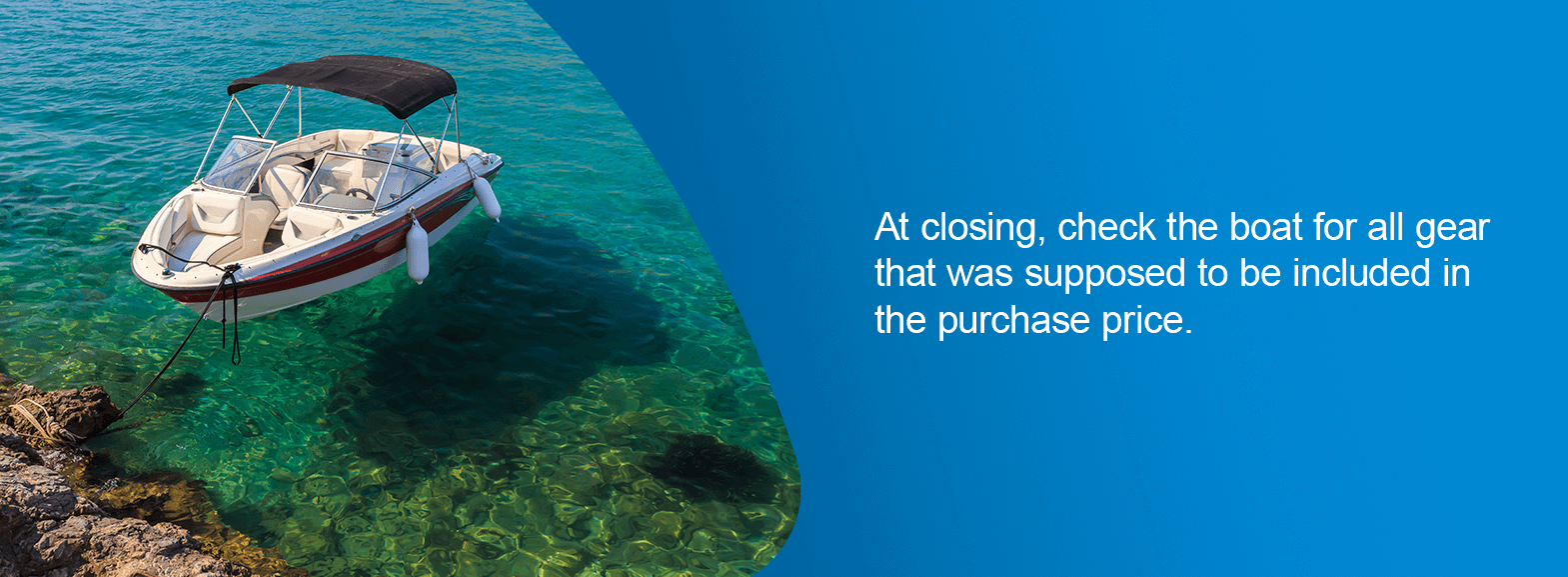
At closing, check the boat for all gear that was supposed to be included in the purchase price. This includes safety gear, fishing equipment, electronics and other items the seller agreed to include in the sale. Make sure the boat is free of any additional damages that might have occurred after your survey. Check the bilges and open up the stowage lockers to look for anything out of place.
Go Over the Paperwork
At closing when you're signing the final paperwork, make sure you have all documents you need, including:
- The title: This is proof that you are the boat's new owner and must be presented as evidence to your lender.
- Boat and trailer registration: Like a car registration, this allows you to legally use your boat.
- Maintenance records: These records prove that the boat has a history of being serviced.
- Warranty papers: If the boat is still under warranty, the owner would have to provide the paperwork.
- The bill of sale: This is required to re-title and register the boat.
- Documentation: Additional documentation includes anything else you need from the previous owner.
What Questions Should You Ask the Owners When Buying a Used Boat?
Whether you have the opportunity to ask the previous owner about the boat or you talk to an agent, make sure you request information about the following:
What Problems Have the Owners Noticed?
If the owners have been able to identify certain issues with the boat or if they have these problems on record, they are required to inform you. The boat could have more concerns that they are unaware of, so it's best to walk away from a sale if the boat already has significant issues like a motor that is unable to run or patchwork to fill in holes.
Where Has the Boat Been Stored?
It is a red flag if the owners are unable to tell you where they have been storing the boat and for how long. This might indicate that they are selling the boat second-hand, so they are uncertain about the storage location or methods used. This might also mean the boat was stored improperly or the owners simply lack knowledge about their boat.
Get a Loan for a Used Boat With My Financing USA
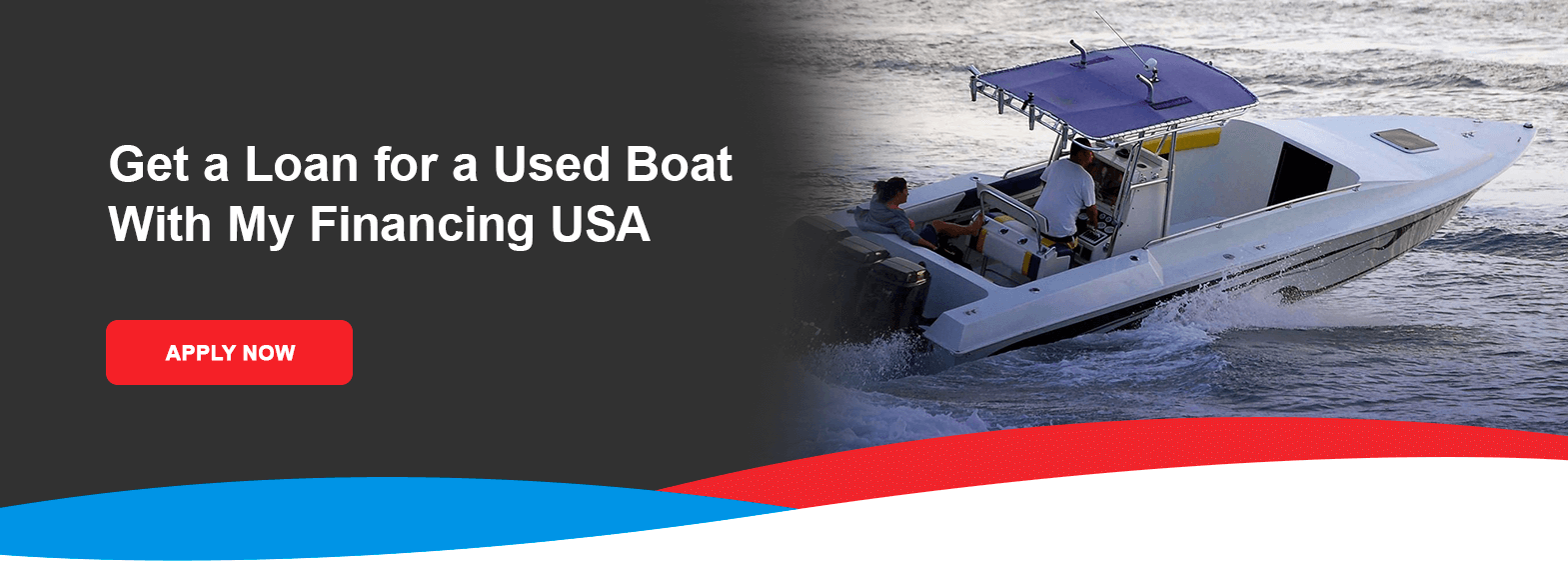
My Financing USA can help make affording your vessel an easy step of the used boat buying process. Committing to a large purchase like a used boat takes financial responsibility, budgeting and planning. We are here to help by matching you to the best possible lenders.
Learn more about how our used boat loans work and our process for connecting you to them. If you are ready for your dream boat, apply for a used boat loan online today.
Additional Resources on Boats:
- How Hard Is It to Finance a Boat?
- Financing a New Boat vs. Used Boat
- How to Find a Used Boat
- How to Determine a Used Boat's Value
- Guide to Refinancing Your Boat
- Guide to Different Types of Boats
- Questions to Ask Boat Dealer Before You Buy
- Costs of Boat Ownership

